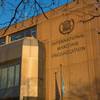The U.S. District Court for the Southern District of New York rejected motions by the defendants to dismiss lawsuits brought by persons injured by the terrorist attacks of September 11, 2001 and by decedent representatives. These plaintiffs brought suit against the airlines, airport security companies, airport operators, the airplane manufacturer, and the owners and operators of the World Trade Center, alleging negligence. Defendants moved to dismiss, asserting, among other things, that they owed no duty to plaintiffs and that they could not reasonably have anticipated that terrorists would hijack airplanes and crash them into buildings. The court ruled that defendants owed duties to plaintiffs sufficient to withstand motions to dismiss. Defendants were in positions to protect plaintiffs from harm. Defendants knew that terrorists had engaged in suicide missions and that they had hijacked airplanes in the past. While they may not have been able to anticipate this particular attack, defendants had an obligation to institute measures to reasonably deter terrorist attacks. While I seldom include district court opinions in the Maritime Items, particularly when the cases are not maritime in nature, this case is important because it provides guidance regarding how a future court might deal with liability for terrorism in the maritime sector. Owners and operators of ships and others in the industry, such as facility operators, should carefully review their security situation, despite the current absence of many specific legal requirements. There were few legal requirements for the defendants in these cases, yet the court found sufficient cause for the claims to go forward. Terrorists have already made attacks in the maritime arena. Your goal as a ship or facility owner or operator is to not be a target. In light of recent events, two lessons can be learned: (1) compliance with all applicable legal requirements is required, but not necessarily sufficient; and (2) virtually anything is now considered foreseeable. In re September 11 Litigation , No. 21 MC 97 (S.D.N.Y., September 9, 2003). (Source: HK Law)
Sponsored Content
Solar shades of exceptional quality

Subscribe for
Maritime Reporter E-News
Maritime Reporter E-News is the maritime industry's largest circulation and most authoritative ENews Service, delivered to your Email five times per week










